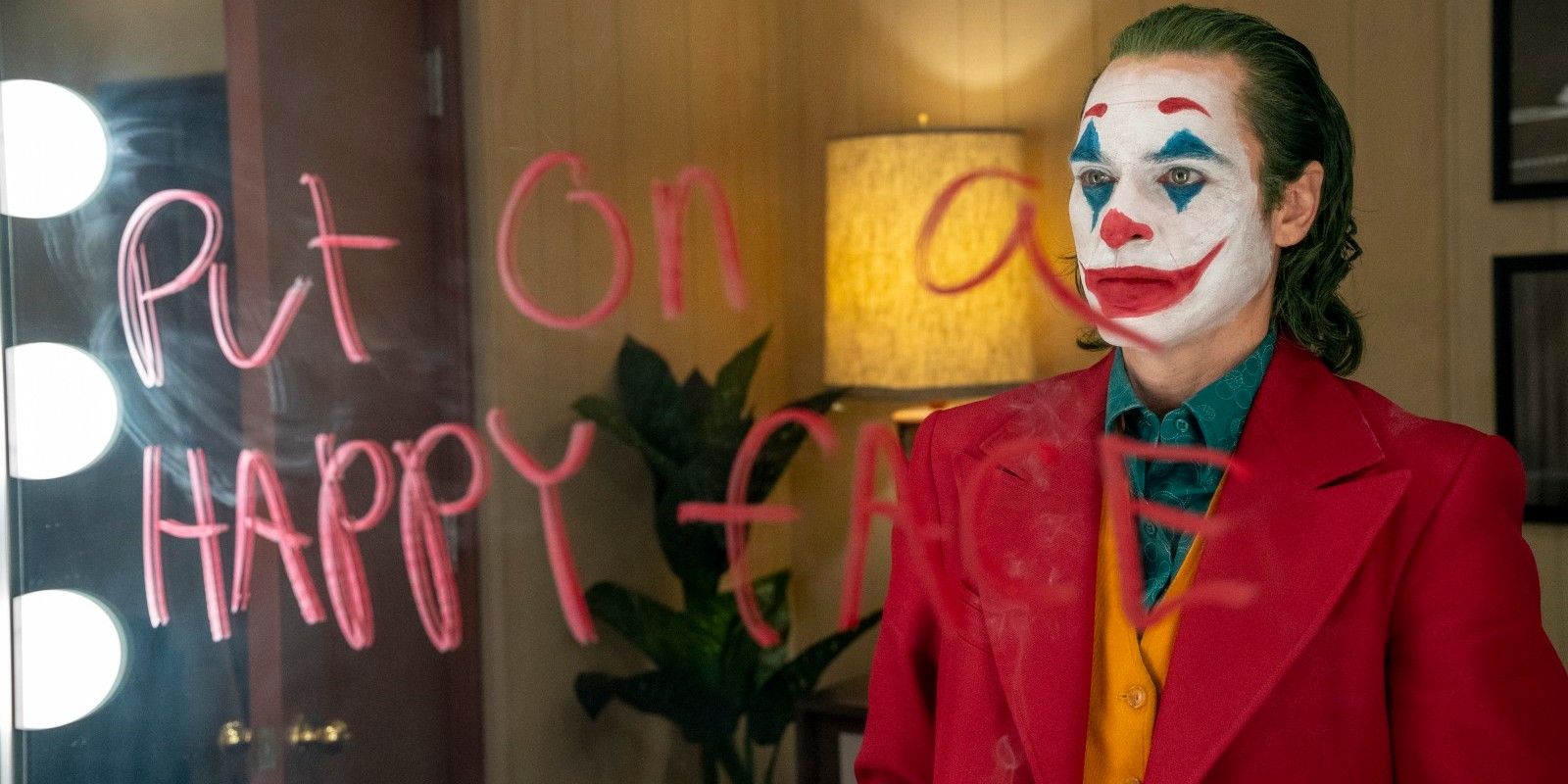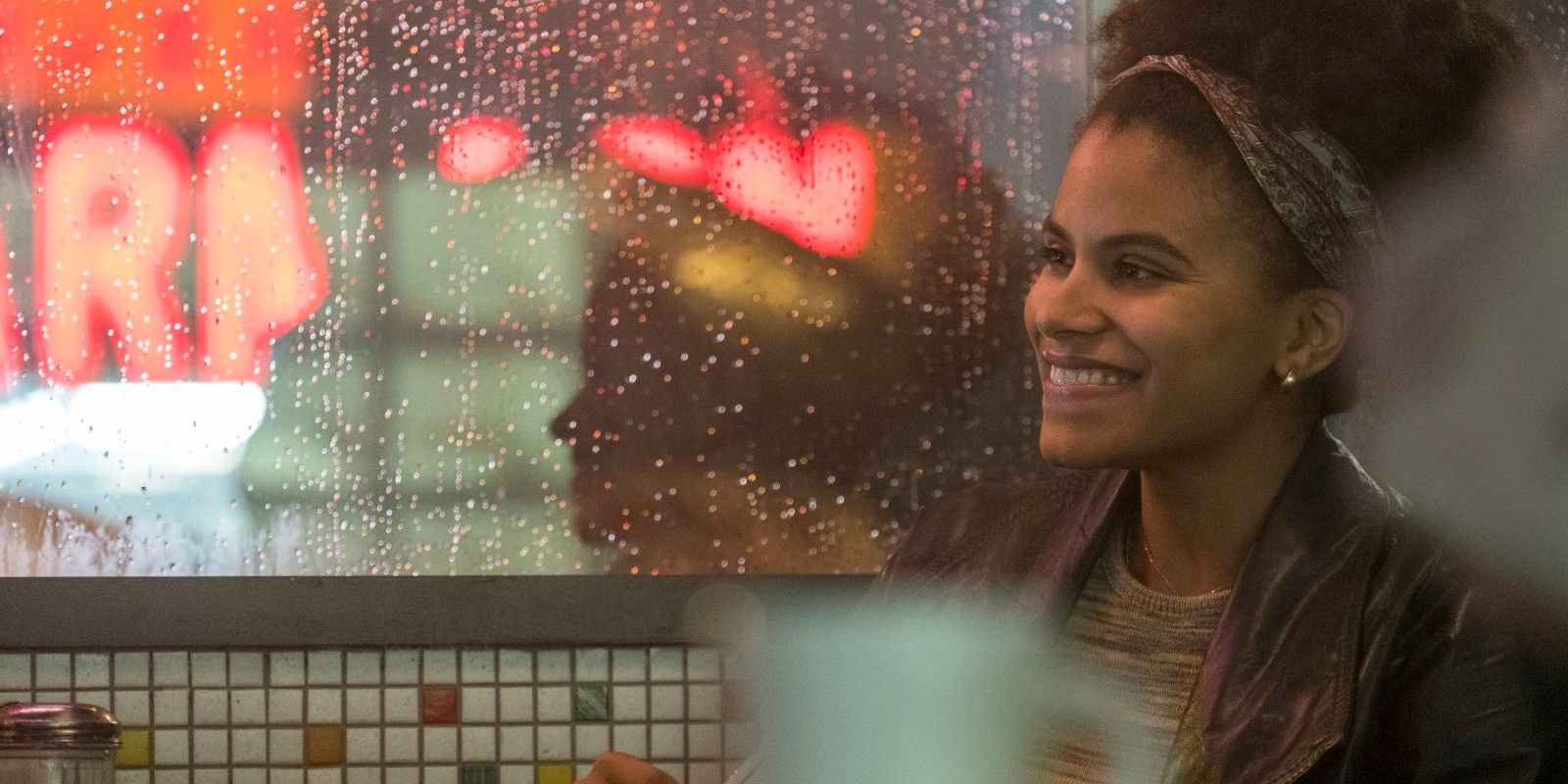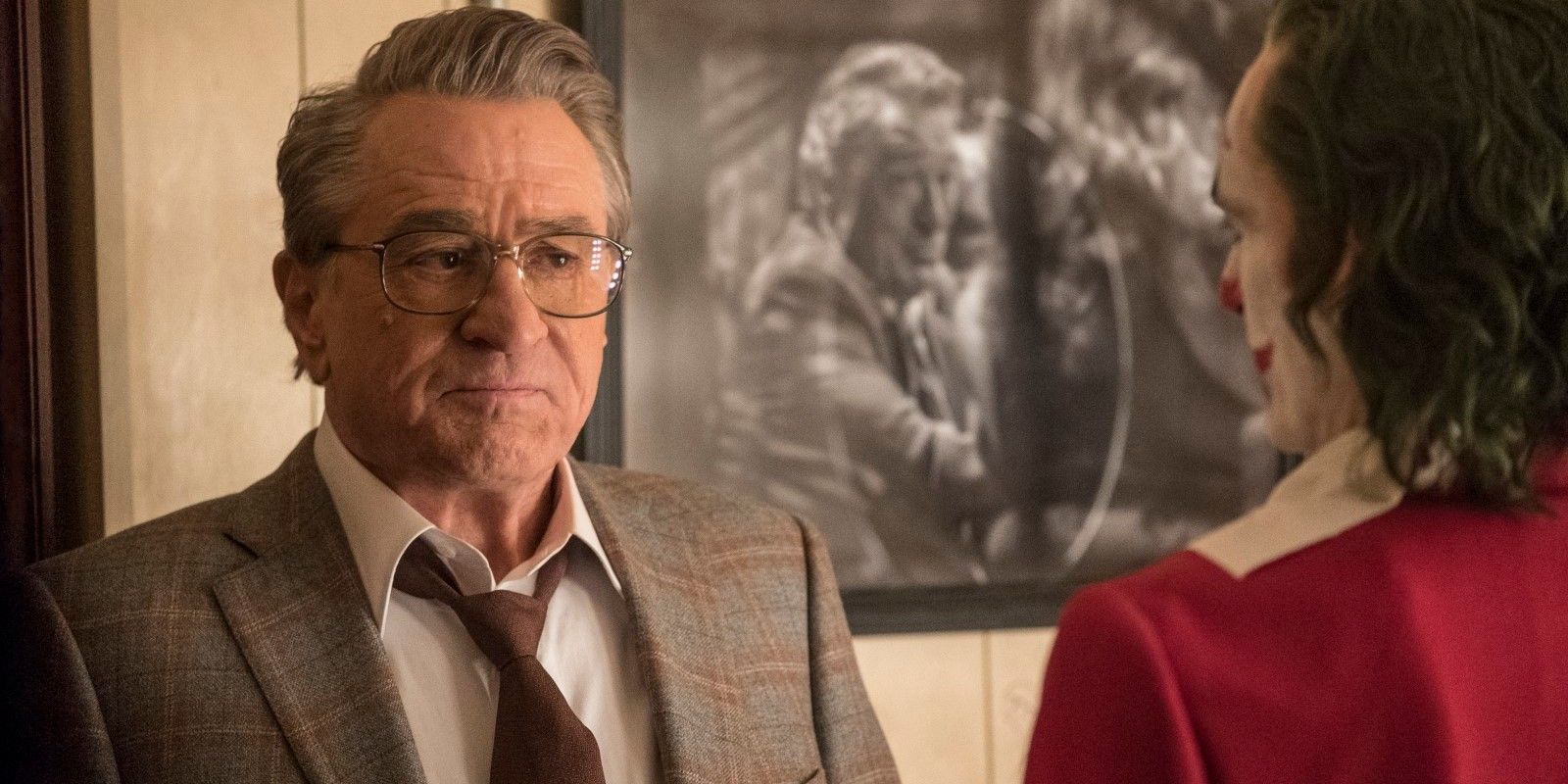
One would be forgiven for assuming Joker opened in theaters a month ago, judging by all the headlines it's made in recent weeks. Todd Phillips' DC comic book adaptation (which exists separate from the Justice League movies) was haled as a masterpiece following its Venice Film Festival premiere in August, which then led to a predictable backlash and an equally unsurprising backlash to that backlash. In truth, the discussion surrounding Joker is, in many ways, more meaningful than the actual film - itself, a work of grimdark storytelling that oscillates from haunting character study to the cinematic equivalent of LEGO Batman's "Untitled Self Portrait" (but without the irony). Joaquin Phoenix goes full Clown Prince of Crime in Phillips' stylish crime drama, but it's not enough to mask the sense of emptiness at Joker's core.
Phoenix stars in Joker as Arthur Fleck, a clown for hire who spends his days dealing with a neurological disorder (one which causes him to spontaneously laugh), caring for his invalid mother Penny (Frances Conroy), trying to become a professional standup comedian, and struggling to get by unharmed on the mean streets of Gotham City circa the early 1980s (or sometime around then). He's also obsessed with late-night talk show host Murray Franklin (Robert De Niro) and starts to develop feelings for Sophie Dumond (Zazie Beetz), a single mother who lives just down the hallway from his and Penny's apartment. But as lonely and cruel as Arthur's daily existence can be, he still manages to get by and hang onto the hope that tomorrow will be better. That is, until, one bad choice sends him down a dark path from which there may be no escape.

It's no secret that Joker - which Phillips also wrote with Scott Silver (8 Mile, The Fighter) - draws inspiration from Martin Scorsese films like Taxi Driver and The King of Comedy, as well as similarly gritty character dramas from the '70s and '80s (One Flew Over the Cuckoo's Nest and A Clockwork Orange being two famous examples). But as the movie continues to borrow more and more from those classics, be it one-off moments or even specific shots, it starts to seem less like homage and more like Joker is simply recycling these elements without adding much of anything new to them. The thematic darkness in Joker also feels superficial in a way that it didn't in those dramas, as far as its social commentary goes. That's not to say the film doesn't have anything on its mind; at different points, it acknowledges issues related to the wealth gap, celebrity worship, gun violence, and gender-based entitlement (and no, it's not an "incel movie"). Even so, giving a hat-tip to these problems isn't the same as saying something - or, in Joker's case, anything - about them.
One could validly argue that's the point: Joker doesn't believe in anything, so why should a movie about his evolution and told from his perspective believe in anything, either? Not least of all, a film where Phoenix gets to truly let loose, dance wildly in slow-motion (enough so to make a drinking game out of those scenes), and dig deeply into the mindset of a character who's covered head to foot in scars both psychological and physical. Phoenix's Joker performance is indeed as transformative and terrifying as early word of mouth would have you believe, but the movie isn't really sure what to do with it. Whereas dramas like The Master and You Were Never Really Here used Phoenix's acting methods to make viewers truly sit with his characters' trauma, Joker is too often guilty of getting caught up in the spectacle of watching him go off the rails. It's dark and disturbing, sure, but mostly for its own sake.

As messy as the film is on a deeper level, it's perhaps equally impressive on the surface. The cinematography by Phillips' trusted DP Lawrence Sher brings Arthur's home to opulently grimy, grubby life, with Chernobyl composer Hildur Guðnadóttir's gloomy and ominous score imbuing the whole thing with an air of operatic doom. And of course, the production design by Mark Friedberg (If Beale Street Could Talk) and costumes from Mark Bridges (Phantom Thread) are essential in allowing the film's setting to evoke the world of an actual '70s or '80s movie without seeming kitschy. Still, as Joker moves further along and begins tossing one plot twist after another at the wall (some of which are quite predictable, others of which are just bleak and nihilistic), the film starts to feel more and more like a triumph of style over substance.
At the end of the day, Joker comes off as Scorsese-lite in the same way that Phillips' last movie, War Dogs, did - albeit, with great acting from Phoenix to elevate it, but also a sense of self-seriousness that borders on self-parody and pretentiousness that War Dogs did not have. It's no surprise the film has been divisive so far; where some will see deeper layers of meaning and purpose to its story, others will see a comic book movie that's almost juvenile in the way it tries to convince viewers it's more grounded and "realistic" than other Batman-related projects before it (a highly debatable notion at best). Whichever side of the fence one falls on (unless they'd prefer to simply sit in the middle), there's certainly a lot to talk about when it comes to Joker. That the discussion might be more interesting and worthwhile than the movie itself, though, is telling in its own way.
Joker is now playing in U.S. theaters. It is 122 minutes long and is rated R for strong bloody violence, disturbing behavior, language and brief sexual images.
from ScreenRant - Feed https://ift.tt/2mHVqvE

0 comments:
Post a Comment